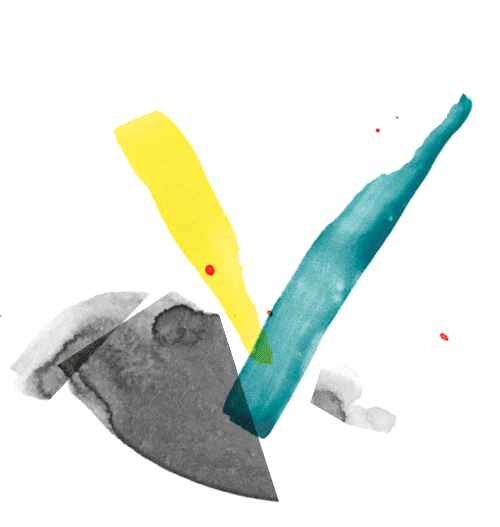

Sign up for our newsletters. You can change the settings or unsubscribe at any time.
Thank you for your subscription. We have sent you an e-mail with a confirmation link.


exp. 1
exp. 2
exp. 3

Naomi Rincón Gallardo
Venue: daadgalerie
Naomi Rincón Gallardo
Born 1979 – based in Mexico City, MX, currently living between Vienna, AT, and Mexico City
Using speculative fiction, a variety of performance dynamics, and technological elements of cuir (rather than queer), pop, and kitsch culture, Naomi Rincón Gallardo creates fables based on Mesoamerican cosmologies and decolonial feminisms. In Resiliencia Tlacuache [Tlacuache Resilience, 2019], Cerro (Spanish for “hill”), Tlacuache (Nahuatl for “opossum”), Lady 9 (a Mixtec cave deity), and Mayahuel (the Aztec goddess of the maguey plant), four characters from different narratives of origin and times come together in the present to evoke the power of fire and joy in the fight against modern extractivism. The characters manifest themselves through celebration, drunkenness, relaxation, and non-conformity. Wearing colorful DIY outfits and objects, dancing and singing in open and closed spaces, they have a lo-fi glam that stands out from the colors of nature. The lyrics of their songs question the processes of expropriation and destruction generated by the logics of progress and associated practices of hoarding. Such cohabitation of entities, landscapes, and actions constitutes what she calls “counter-worlds,” which juxtapose irreverence (towards the codes of capital and colonialism) with respect (towards Indigenous worldviews). Her work is clearly indebted to the latter, in which spiritual forms populate and enchant the everyday.
The work is dedicated to the struggle of Zapotec environmental activist Rosalinda Dionisio Sánchez, who from her community in San José del Progreso, Oaxaca, has denounced the mining ventures responsible for depriving traditional communities of their territories and of the possibility to continue living according to their ancestral worldviews.
Beatriz Lemos
#fight4rojava
Graffiti
IV: How Fear Can Dismantle a Body. Vis-a-Vis with two of four curators of the 11th Berlin Biennale
María Berríos, Lisette Lagnado
Conversation
Undocumented Rumours and Disappearing Acts from Chile
María Berríos
Essay
Teatro da Vertigem
Monograph
Weaving Solidarity
Renata Cervetto and Duygu Örs
Q&A
O Bailado do Deus Morto
Flávio de Carvalho
Play
By using this website you agree to the use of cookies in accordance with our data privacy policy.

Naomi Rincón Gallardo
Venue: daadgalerie
Naomi Rincón Gallardo
Born 1979 – based in Mexico City, MX, currently living between Vienna, AT, and Mexico City
Using speculative fiction, a variety of performance dynamics, and technological elements of cuir (rather than queer), pop, and kitsch culture, Naomi Rincón Gallardo creates fables based on Mesoamerican cosmologies and decolonial feminisms. In Resiliencia Tlacuache [Tlacuache Resilience, 2019], Cerro (Spanish for “hill”), Tlacuache (Nahuatl for “opossum”), Lady 9 (a Mixtec cave deity), and Mayahuel (the Aztec goddess of the maguey plant), four characters from different narratives of origin and times come together in the present to evoke the power of fire and joy in the fight against modern extractivism. The characters manifest themselves through celebration, drunkenness, relaxation, and non-conformity. Wearing colorful DIY outfits and objects, dancing and singing in open and closed spaces, they have a lo-fi glam that stands out from the colors of nature. The lyrics of their songs question the processes of expropriation and destruction generated by the logics of progress and associated practices of hoarding. Such cohabitation of entities, landscapes, and actions constitutes what she calls “counter-worlds,” which juxtapose irreverence (towards the codes of capital and colonialism) with respect (towards Indigenous worldviews). Her work is clearly indebted to the latter, in which spiritual forms populate and enchant the everyday.
The work is dedicated to the struggle of Zapotec environmental activist Rosalinda Dionisio Sánchez, who from her community in San José del Progreso, Oaxaca, has denounced the mining ventures responsible for depriving traditional communities of their territories and of the possibility to continue living according to their ancestral worldviews.
Beatriz Lemos
Umbilical Cord Amulet
McCord Museum
Object
Undocumented Rumours and Disappearing Acts from Chile
María Berríos
Essay
Freiheit für Chile!
Anonymous
Photo album
Grupo Experimental de Cine en acción
Gabriel Peluffo
Drawing
St Sara Kali George
Delaine Le Bas
Soundscape
Hatred Among Us
Lisette Lagnado
Essay
By using this website you agree to the use of cookies in accordance with our data privacy policy.

Naomi Rincón Gallardo
Venue: daadgalerie
Naomi Rincón Gallardo
Born 1979 – based in Mexico City, MX, currently living between Vienna, AT, and Mexico City
Using speculative fiction, a variety of performance dynamics, and technological elements of cuir (rather than queer), pop, and kitsch culture, Naomi Rincón Gallardo creates fables based on Mesoamerican cosmologies and decolonial feminisms. In Resiliencia Tlacuache [Tlacuache Resilience, 2019], Cerro (Spanish for “hill”), Tlacuache (Nahuatl for “opossum”), Lady 9 (a Mixtec cave deity), and Mayahuel (the Aztec goddess of the maguey plant), four characters from different narratives of origin and times come together in the present to evoke the power of fire and joy in the fight against modern extractivism. The characters manifest themselves through celebration, drunkenness, relaxation, and non-conformity. Wearing colorful DIY outfits and objects, dancing and singing in open and closed spaces, they have a lo-fi glam that stands out from the colors of nature. The lyrics of their songs question the processes of expropriation and destruction generated by the logics of progress and associated practices of hoarding. Such cohabitation of entities, landscapes, and actions constitutes what she calls “counter-worlds,” which juxtapose irreverence (towards the codes of capital and colonialism) with respect (towards Indigenous worldviews). Her work is clearly indebted to the latter, in which spiritual forms populate and enchant the everyday.
The work is dedicated to the struggle of Zapotec environmental activist Rosalinda Dionisio Sánchez, who from her community in San José del Progreso, Oaxaca, has denounced the mining ventures responsible for depriving traditional communities of their territories and of the possibility to continue living according to their ancestral worldviews.
Beatriz Lemos
Expresiones de la locura: el arte de los enfermos mentales
Hans Prinzhorn
Monograph
Género y colonialidad en busca de claves de lectura y de un vocabulario estratégico descolonial
Rita Segato
Essay
#fight4rojava
Graffiti
A World Without Bones
Agustín Pérez Rubio
Grupo Experimental de Cine en acción
Gabriel Peluffo
Drawing
THE MOBILIZATION
Nicolás Cuello
Text
By using this website you agree to the use of cookies in accordance with our data privacy policy.

Naomi Rincón Gallardo
Venue: daadgalerie
Naomi Rincón Gallardo
Born 1979 – based in Mexico City, MX, currently living between Vienna, AT, and Mexico City
Using speculative fiction, a variety of performance dynamics, and technological elements of cuir (rather than queer), pop, and kitsch culture, Naomi Rincón Gallardo creates fables based on Mesoamerican cosmologies and decolonial feminisms. In Resiliencia Tlacuache [Tlacuache Resilience, 2019], Cerro (Spanish for “hill”), Tlacuache (Nahuatl for “opossum”), Lady 9 (a Mixtec cave deity), and Mayahuel (the Aztec goddess of the maguey plant), four characters from different narratives of origin and times come together in the present to evoke the power of fire and joy in the fight against modern extractivism. The characters manifest themselves through celebration, drunkenness, relaxation, and non-conformity. Wearing colorful DIY outfits and objects, dancing and singing in open and closed spaces, they have a lo-fi glam that stands out from the colors of nature. The lyrics of their songs question the processes of expropriation and destruction generated by the logics of progress and associated practices of hoarding. Such cohabitation of entities, landscapes, and actions constitutes what she calls “counter-worlds,” which juxtapose irreverence (towards the codes of capital and colonialism) with respect (towards Indigenous worldviews). Her work is clearly indebted to the latter, in which spiritual forms populate and enchant the everyday.
The work is dedicated to the struggle of Zapotec environmental activist Rosalinda Dionisio Sánchez, who from her community in San José del Progreso, Oaxaca, has denounced the mining ventures responsible for depriving traditional communities of their territories and of the possibility to continue living according to their ancestral worldviews.
Beatriz Lemos
COVID-19 VIDEOS
Carlos Motta
Video
Feminist Health Care Research Group
Web archive
Invitation to the Species: Cecilia Vicuña
Tamaas / Cecilia Vicuña
Podcast
Undocumented Rumours and Disappearing Acts from Chile
María Berríos
Essay
Umbilical Cord Amulet
McCord Museum
Object
Glossary of Common Knowledge
L’Internationale Online
Glossary
By using this website you agree to the use of cookies in accordance with our data privacy policy.
By using this website you agree to the use of cookies in accordance with our data privacy policy.




